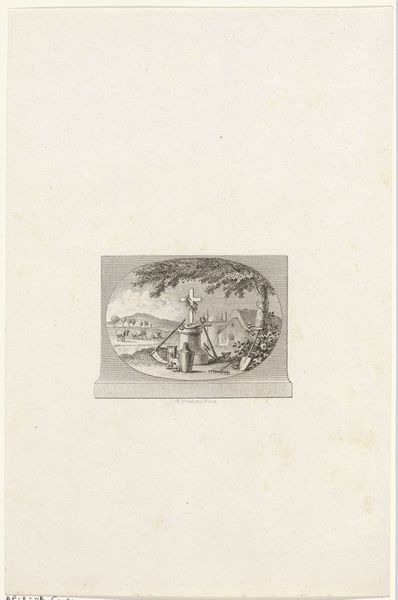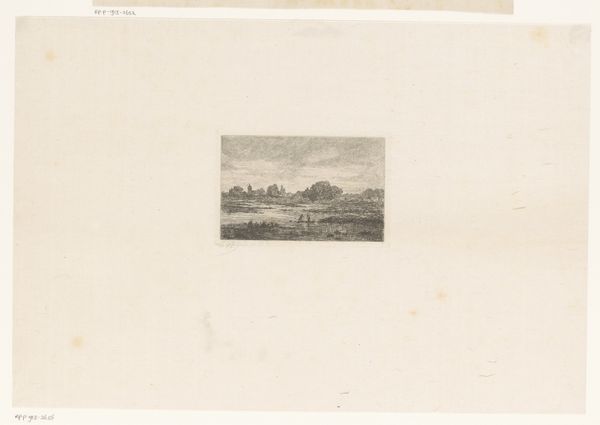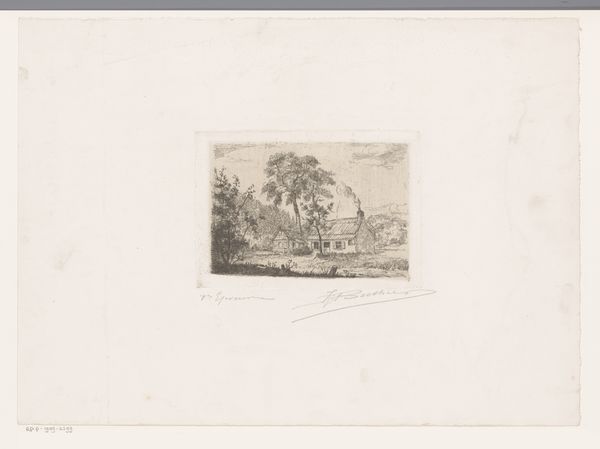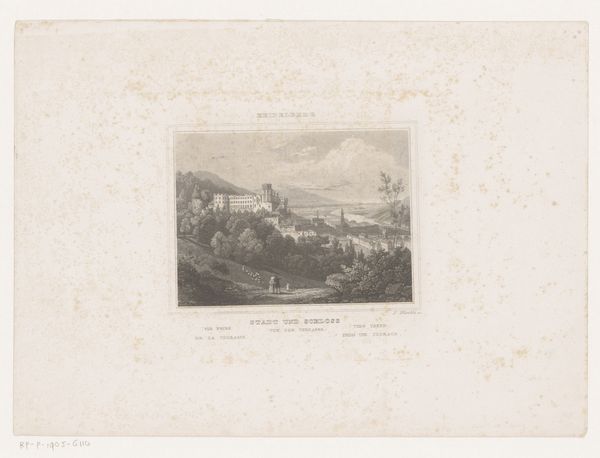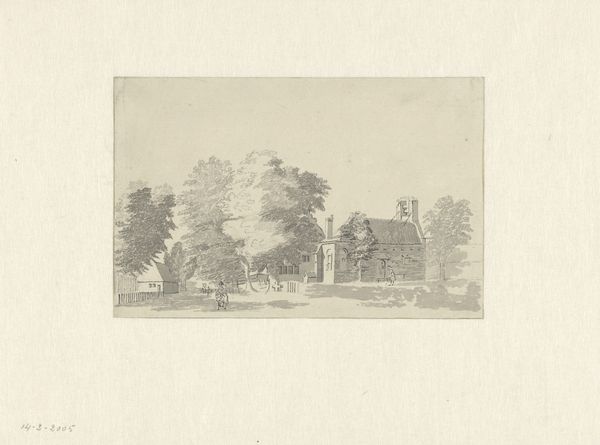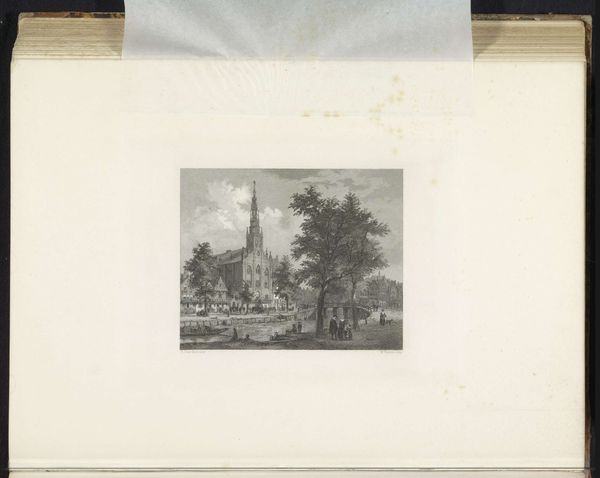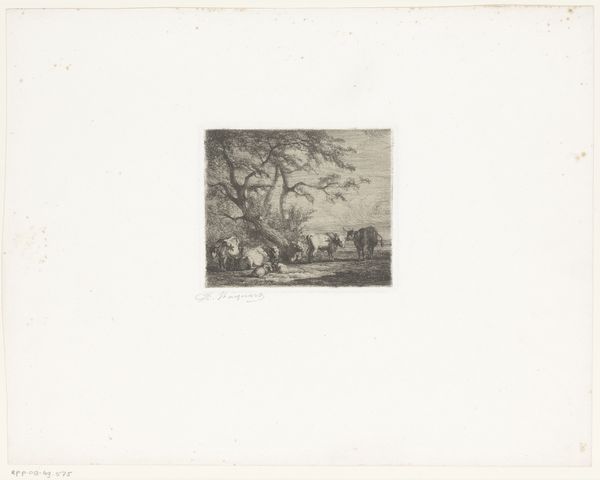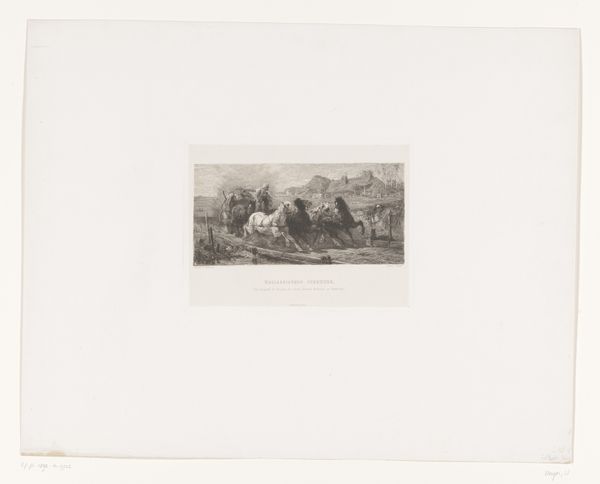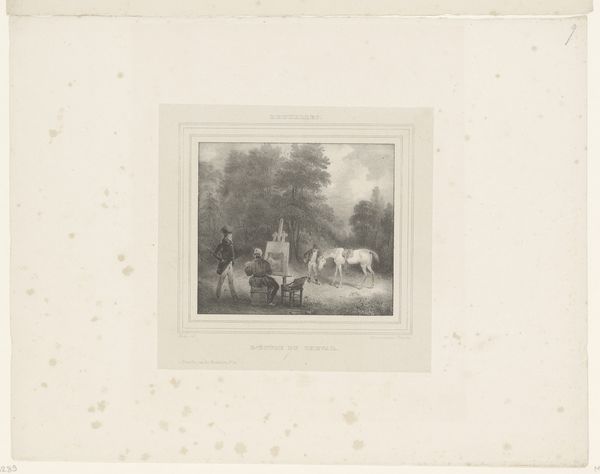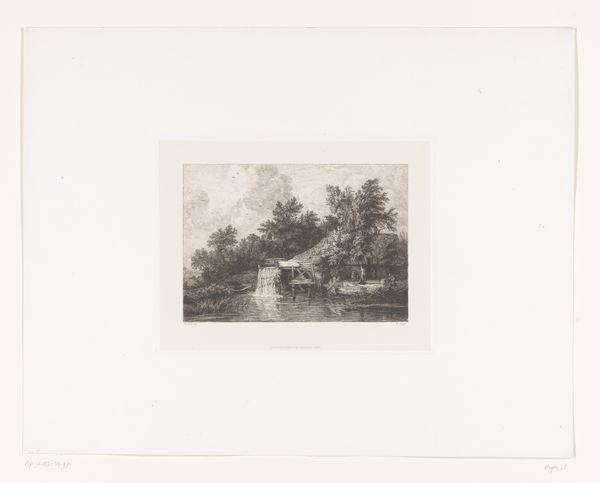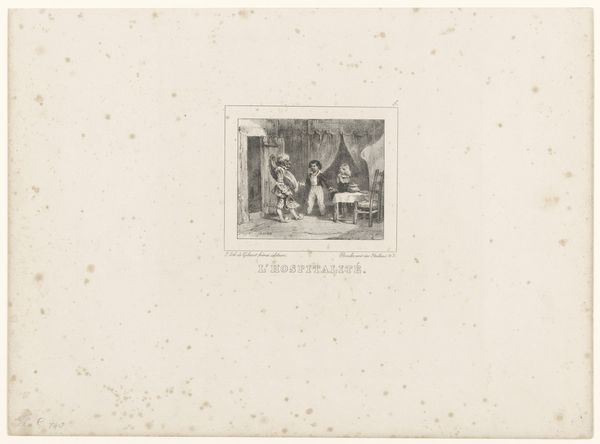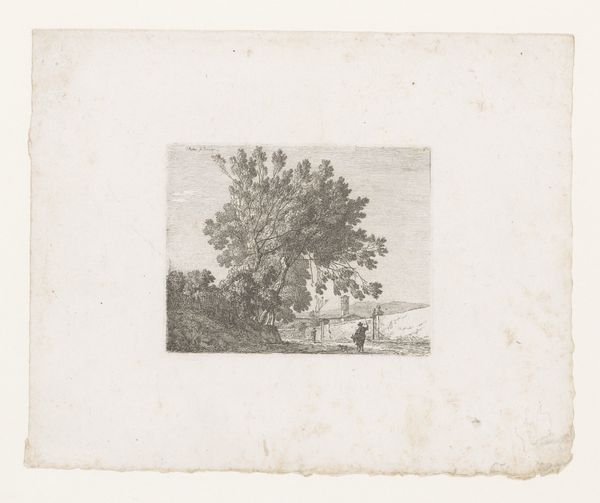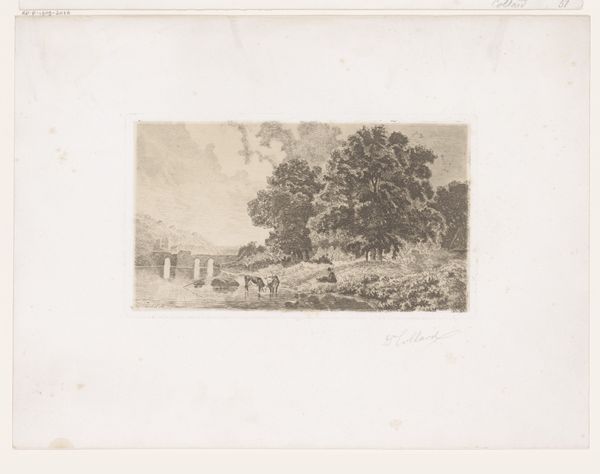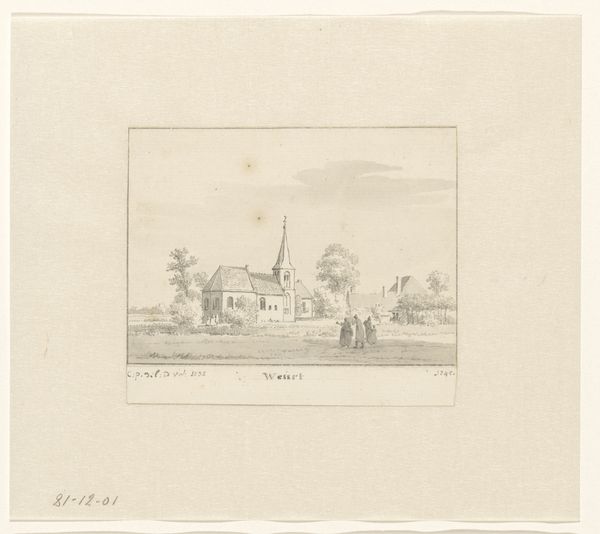
drawing, print, etching
#
drawing
#
baroque
# print
#
etching
#
old engraving style
#
landscape
#
cityscape
Dimensions: height 75 mm, width 97 mm
Copyright: Rijks Museum: Open Domain
Hendrik Spilman made this print of Rhijnauwen in the 1700s using etching and engraving, techniques that rely on acid to bite lines into a metal plate. Look closely, and you can see how the crisp, precise lines define the architecture and landscape. The sharp burr of the engraving captures the light reflecting off the water and stone. The image is a product of skilled labor, where the artisan's hand coaxes detail from the resistant metal. Such prints were part of a booming visual culture. They catered to a growing middle class eager to consume images of property and place. Spilman's print translates the physical world into a commodity, a collectible view. The etching process allowed for multiples, democratizing ownership of this vista, and feeding a market hungry for views of the good life. Considering the making of this print allows us to appreciate the skill involved, and to see it as more than just a picture. It's a document of its time, reflecting evolving attitudes toward property, labor, and the commodification of beauty.
Comments
No comments
Be the first to comment and join the conversation on the ultimate creative platform.
